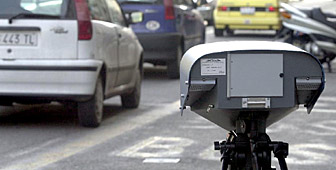Billions returned to Italy under tax amnesty

Italians are estimated to have repatriated between SFr45-50 billion (€30-35 billion) from Switzerland, under a tax amnesty which ended on Wednesday.
The sums, although vast, are only a fraction of the SFr400 billion that Italians are estimated to have deposited in Switzerland, chiefly in banks in canton Ticino.
Italians started repatriating money from Switzerland last November in response to an amnesty granted by the Italian finance minister, Giulio Tremonti.
He was hoping to recover as much as €100 billion from Switzerland, but analysts say the amount returned is unlikely to exceed SFr45 billion.
“The money repatriated to Italy will probably amount to around ten per cent of the total sum deposited in Swiss bank accounts,” says Thomas Suter, a spokesman for the Swiss Bankers’ Association.
Indeed, so sluggish was the initial response to Tremonti’s amnesty that he decided to extend the deadline of February 28 to May 15.
“On shore” strategy
Swiss banks such as UBS and Credit Suisse have responded to the amnesty by opening branches across Italy in the past few months, in a bid to attract funds from former clients looking for a new home for their money.
Credit Suisse estimating that its “on-shore” strategy will enable it to retain up to 90 per cent of the money, which was invested its Swiss branches. The Ticino-based banks, including Banca del Gottardo and BSI, are also expanding into Italy.
Under the terms of the amnesty, Italians repatriating funds will benefit from partial immunity from tax-evasion legislation. Penalties will be limited to a tax of 2.5 per cent levied on the gross amount deposited into an account.
Tax evasion
“Those people guilty of tax evasion in the first place are effectively being recompensed [under Tremonti’s scheme],” says Stephane Garelli, professor at the IMD Institute in Lausanne.
In order to keep track on tax evaders, the Italian authorities have installed video cameras along the border with Ticino. They say the move has lead to several arrests of businessmen suspected of smuggling cash into Switzerland, as well as other smugglers.
Switzerland is the main destination for Italian funds deposited abroad, accounting for about €400 million of a total of €500 million invested. Of that amount, €250 million is thought to be in accounts in Ticino.
New fears
The Italian amnesty has raised fears that Switzerland’s other European neighbours might follow suit. Spain and Belgium say they are considering such a scheme.
The Swiss Bankers’ Association says it’s not overly concerned. “Foreigners invest in Switzerland for reasons other than avoiding tax,” says Suter. “Our institutions guarantee stability, competence and quality.”
France tried a similar amnesty in the 1980s, but failed to attract large sums.
In Garelli’s view, Switzerland’s position as a financial centre is threatened far more by European Union pressure to relax banking secrecy than it is by national tax amnesties.
Switzerland’s is the world’s largest “offshore” banking centre holding over SFr1 trillion in overseas assets. The banking sector is estimated to accounts for 11 per cent of gross domestic product.
swissinfo

In compliance with the JTI standards
More: SWI swissinfo.ch certified by the Journalism Trust Initiative
You can find an overview of ongoing debates with our journalists here. Please join us!
If you want to start a conversation about a topic raised in this article or want to report factual errors, email us at english@swissinfo.ch.